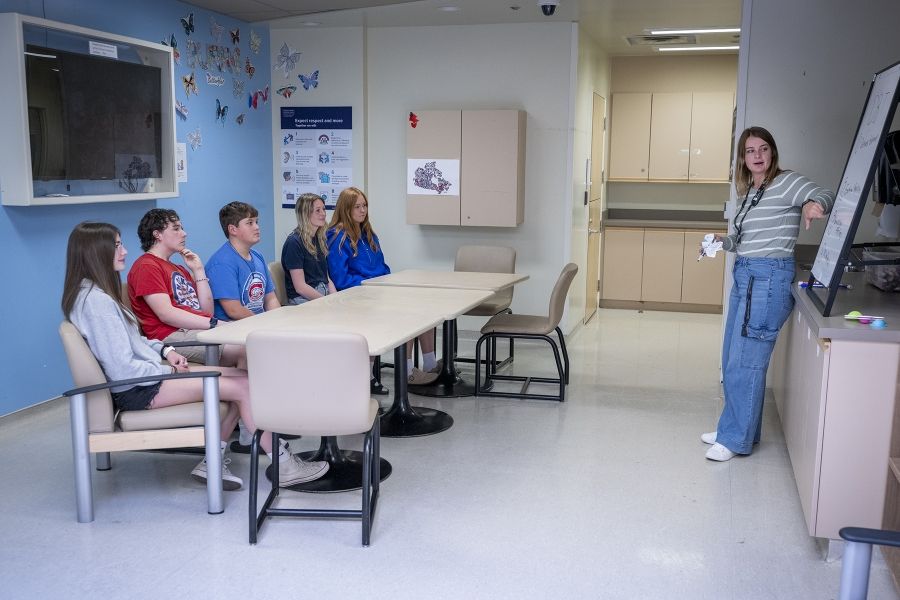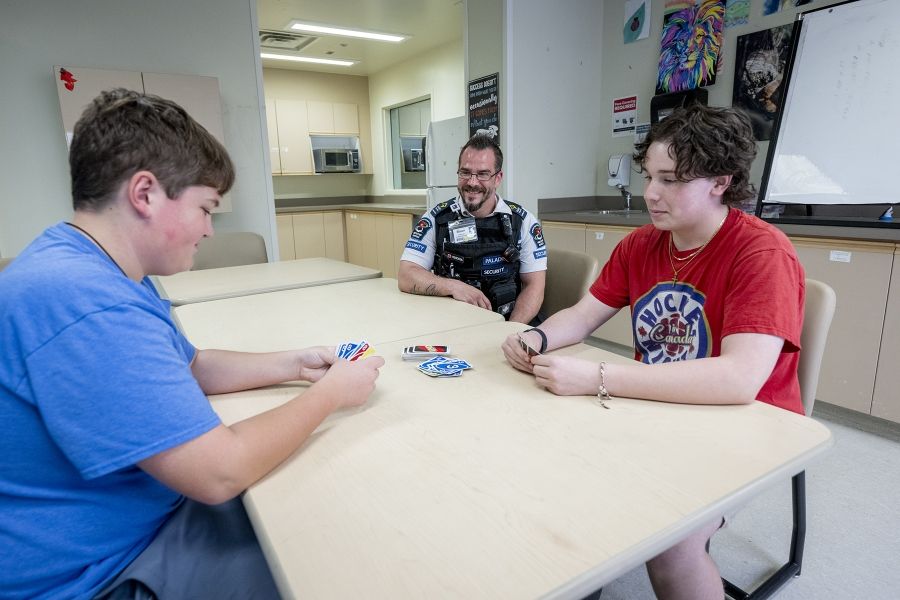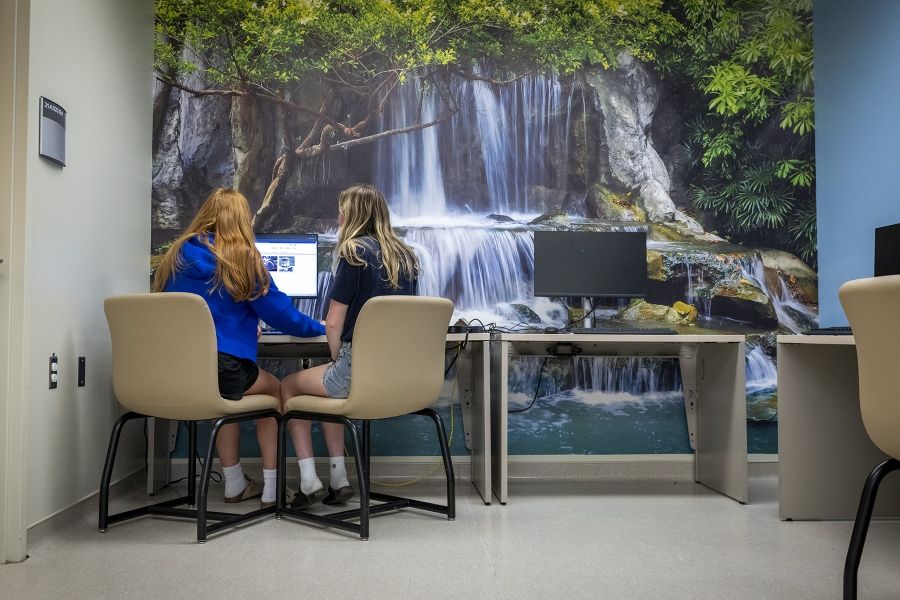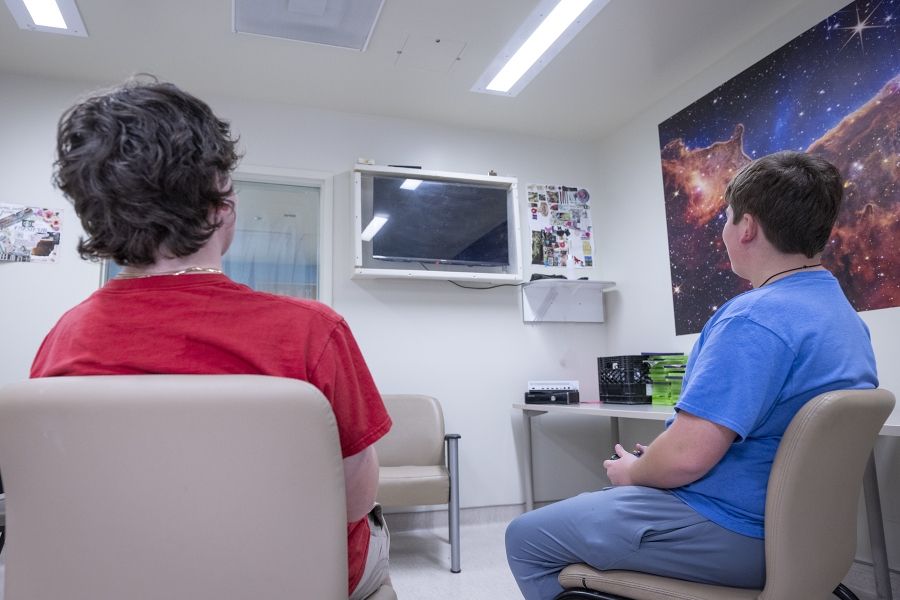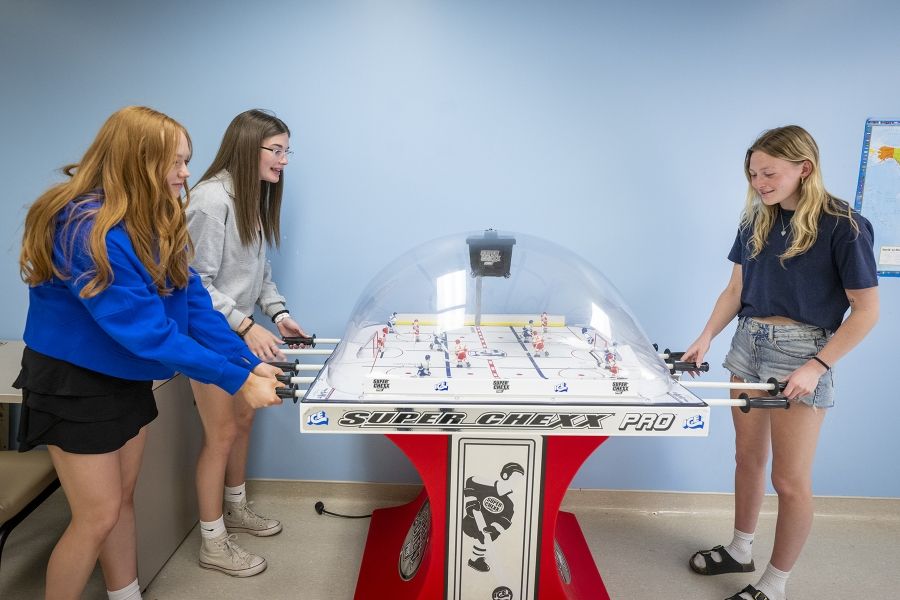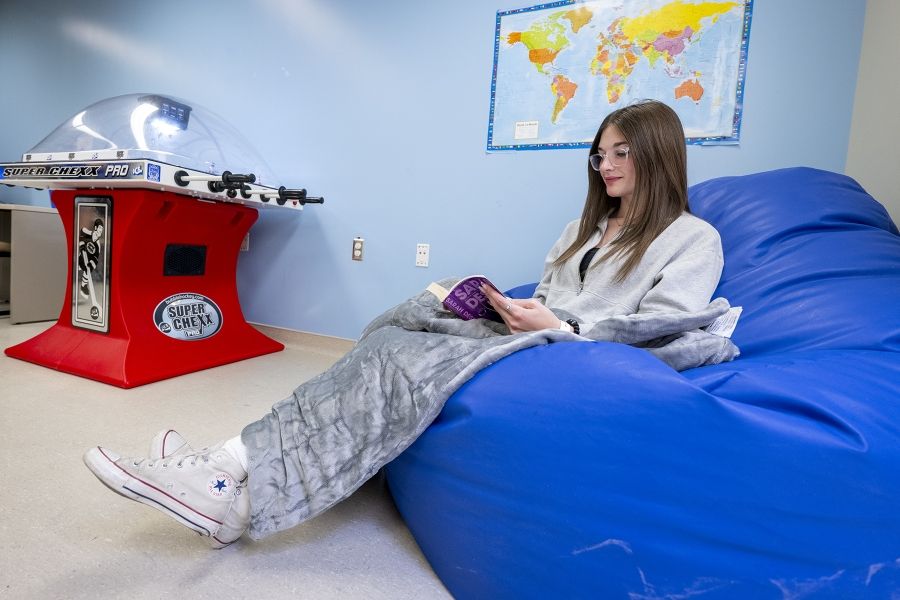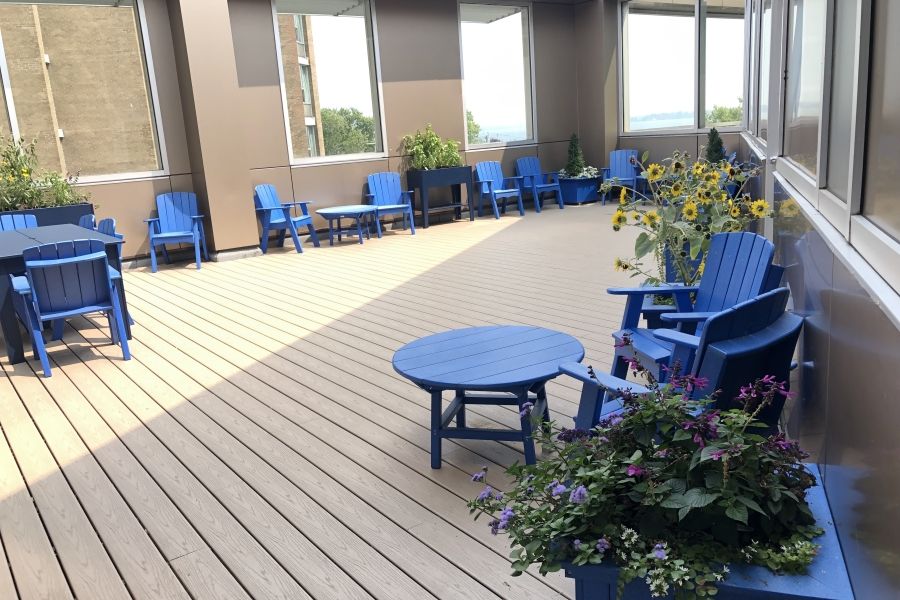By partnering with patients and their families, we will work as a team to make sure you have the best possible experience in the hospital. We believe that you are important members of our team, and we want to make sure your voice is heard. That is why we include you in every decision about your care.
What to expect when admitted to the hospital
The Child and Youth inpatient unit offers 8 beds for patients under the age of 18. The first weekday after the person is admitted to the unit, there will be a meeting with the patient, their family, and the hospital team. Patients and their family members are included in any plans the hospital team makes for treatment. The patient and family can invite other care providers or school supports to attend these meetings if they would like.
During the week, there are treatment programs during the day, such as individual and group therapy and time for school work. There is a discharge meeting close to the end of the stay to provide information to family members and ensure that the patient and family have supports in place to be successful after discharge.
The safety of children in the unit is a high priority. For this reason, the Child and Youth unit is locked and security will open the door to let people in or out. This is for the safety of patients so that no one can enter or leave the unit without permission. There are many reasons why patients may be admitted to this unit, so there are different safety rules to ensure that everyone is safe.
All of the rooms are for one patient and contain a bed, chair, built-in desk and open cupboards. There are windows in all the rooms with unbreakable glass. Washroom, lounge areas, dining area, and group rooms are shared.
There are cameras and microphones in some parts of the unit to ensure the safety of everyone.
Life on the unit: A supportive space for healing
A stay in the Child and Youth Mental Health hospital unit can feel overwhelming at first—but it’s not all medical equipment and appointments. The unit includes welcoming spaces, activities, and daily routines designed to support mental wellness and everyday comfort. From group sessions that build coping skills to free time for games, reading, and connection, these moments help young people feel more at ease and supported during their stay.

